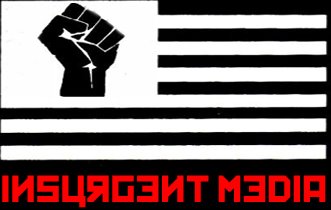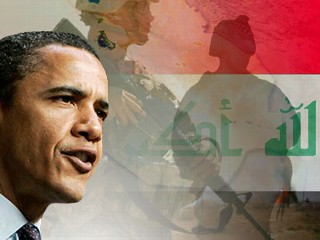
Stolen from MCCLATCHY NEWSPAPERS
By CORINNE REILLY MCCLATCHY NEWSPAPERS
BAGHDAD -- Every day, a man driving a tanker truck filled with water comes to Nashat al-Chamamla's village in southern Iraq, and every day the people line up to fill their jugs and jerry cans. "The water we buy from the tanker isn't clean. You can see the dirt in it," Chamamla said. "But we drink it anyway."
Violence has dropped dramatically across Iraq in recent months, but the fight for a better life is just beginning. From electricity and health care to education and the economy, Iraq has many needs, and safe drinking water is among the most urgent.
"The water situation in Iraq is a crisis," said Bushra Jabbar al-Kinani, an Iraqi lawmaker and a member of the parliament's services and public works committee. "We see the consequences in the health of our people, and they are very bad."
Waterborne diseases such as cholera and typhoid are endemic. A cholera outbreak this summer sickened hundreds in Baghdad and Babil province. Diarrhea is among the leading causes of childhood illness and death in Iraq, according to the Iraqi Red Crescent Organization, a nonprofit aid agency.
"Everywhere there is not clean water there is disease," said Jalil al-Shimari, a doctor with Baghdad's health directorate. "We see a steady number of people still getting sick from the water problems."
No one in Nashat al-Chamamla's village about 200 miles southeast of Baghdad has running water. Until an enterprising man started showing up with the tanker truck a couple of years ago, everyone drank from the Euphrates River. Most people in the village still use river water to bathe and wash their clothes, and some still drink it.
"I hear it's dangerous," said al-Chamamla, who's unemployed. "But I haven't been sick from the water yet, so I think it's OK."
Though estimates vary, most say that nearly half of Iraq's people don't have reliable access to safe drinking water. In a national survey that questioned 8,700 people in August, 58 percent said they can get clean water at least some of the time, according to a Defense Department report.
For the rest, every sip is a gamble.
About 40 percent of Iraqi households still don't have running water, according to the International Committee of the Red Cross.
Even before the 2003 U.S.-led invasion, a large portion of Iraq's population lacked access to safe drinking water. The 1991 Gulf War and the sanctions that followed it took a toll on the country's ability to deliver clean water and properly handle sewage. The violence and the widespread looting that accompanied the fall of Saddam Hussein's dictatorship aggravated the problems.
Some families without running water buy it from stores and tanker trucks, but others who are too poor collect it from rivers, canals and wells that often are badly polluted.
In Baghdad, about two-thirds of the city's sewage still flows untreated to rivers and other waterways, said Lt. Col. Jarrett Purdue, the head of the water sector for the U.S. Army Corps of Engineers' Gulf Region Division.
Even for those who have it, running water isn't consistently available, and its safety is questionable.
"People can simply smell the water and know it's bad. I hear this all the time," al-Kinani said. "And often they turn on the tap and there is nothing."
Haider Hussein, a 35-year-old father of two, said that his house in Baghdad's Sadr City district rarely has water. "Especially in the mornings, you turn on the sink and nothing comes out," he said. "If it does, it smells of sewage . . . . I am afraid to give it to my children, but we can't afford bottled water every day."
In Baghdad and outlying provinces alike, water purification plants use inconsistent and often ineffective methods, said Dorothea Krimitsas, a spokeswoman for the ICRC, which is working to improve clean-water delivery in Iraq.
"Sometimes it's a lack of expertise in the people staffing the plants, and sometimes it's a lack of chemicals and equipment," Krimitsas said. "But whatever the reasons, we know steps do get missed."
Contamination after water leaves purification plants is a bigger problem, she said. Pipes across Iraq have been damaged by the war. Others have gone years without maintenance. That's especially dangerous in the many areas of Iraq that also lack operational sewage lines.
"When you literally have sewage flowing down the streets and the pipes for the clean water are broken, it's easy to imagine how it all ends up mixing back together," Krimitsas said.
Muslim Khalaf, a 38-year-old English teacher from Basra, won't let his four children drink water from their faucets. Instead, he drives two or three times a day to a nearby shop to fill an empty water can.
"We know the pipes are all broken, and we know sewage gets in," Khalaf said. "We are fortunate that we can afford to buy something safer."
International aid organizations, the U.S. and the Iraqi government are all working to improve clean-water delivery. Since 2003, the U.S. has spent about $2.4 billion on water projects here, according to an October report by the Special Inspector General for Iraq Reconstruction.
Most of that has gone to building and repairing pipe networks, water purification plants and sewage pumping and treatment stations. The U.S. also has launched programs to train plant operators and develop the Iraqi government's capacity to manage its own water projects, said Purdue, the Army Corps official.
"We've definitely come a long, long way," he said. "Millions of people here have water who didn't have it before."
But there's a long way to go, too.
Most estimates put the total cost of delivering clean water across Iraq at more than $10 billion, and that number goes up every time insurgents target pipelines, pumping stations and other facilities. A homemade bomb recently broke a water main in Baghdad's Adhamiyah neighborhood, cutting service to hundreds of thousands of people, the U.S. military said.
Al-Kinani, the Iraqi lawmaker, said that progress also has been slowed by corruption and incompetence in Iraqi government ministries.
"They don't understand the significance of the problem because they don't go out to meet the people and see the suffering," he said. "This is unfortunate, because the suffering is everywhere."





















